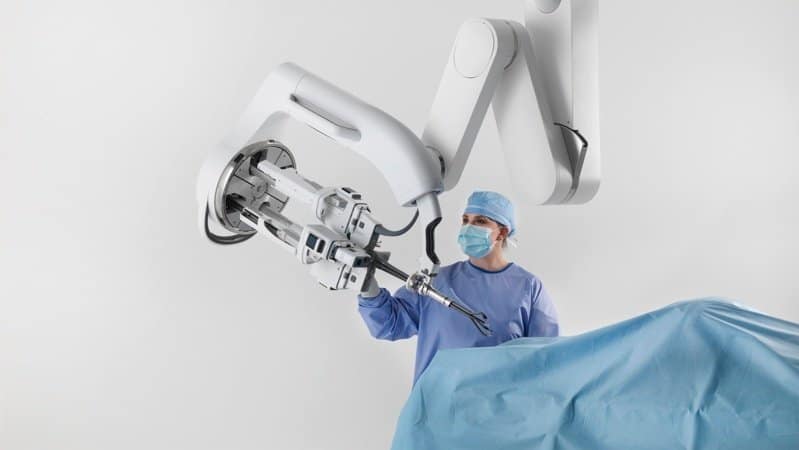Robotic surgery giant Intuitive Surgical has launched its first venture capital fund, aimed at early-stage companies with a focus on delivering and supporting the field of minimally invasive procedures.
With an inaugural $100 million fund, Intuitive Ventures has set out to build an international portfolio of players developing new digital tools and device platforms, as well as adjacent companies in diagnostics and therapeutics.
“The future of minimally invasive care spans the patient journey from early diagnosis to treatment and beyond,” said Intuitive Ventures President Julian Nikolchev, who also serves as senior vice president of corporate development and strategy at the elder Intuitive.
Nikolchev—who previously helped found the device companies Pivot Medical, CardioMind and Pro-Duct Health—will be joined at Intuitive Ventures by director Oliver Keown, formerly of GE Ventures.
“We are value-add investors who leverage access to Intuitive’s unique industry expertise and customer connections,” Keown said, which includes links to over 3,000 hospitals in at least 67 countries, gathered by the robotic surgery company over the past two decades. “Our nimble structure and alignment with the startups we will back empower us to invest early and support our portfolio companies as they pioneer markets.”
The public launch of the fund comes on the heels of Intuitive Surgical’s latest quarterly earnings report, which illustrated the beginnings of a partial recovery from the impacts COVID-19 has had this year on procedure volume worldwide.
The company reported about a 7% increase in the number of surgeries performed with its da Vinci system compared to the third quarter of 2019—however, the shipment of new systems dropped by 29% from 275 to 195 at the same time. Still, it was able to grow its installed base of da Vinci systems by 8%, to 5,865 over 5,406.
All told, Intuitive’s third-quarter revenue topped $1.078 billion, a 4% decrease compared to 2019’s $1.128 billion—with a total net income of $314 million down about 20% from $397 million.
The company said it had recovered “a significant portion” of its pre-COVID volume of da Vinci surgical procedures, but the resurgence of coronavirus cases in recent weeks in certain U.S. states will likely threaten those numbers.

